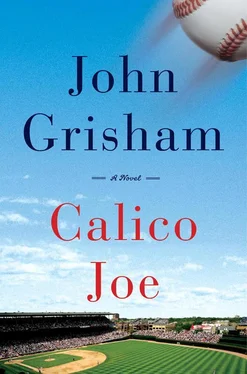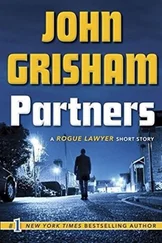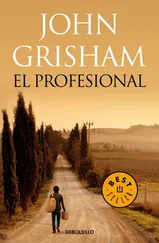“Why’d he bunt?” someone in the crowd asked Charlie.
“To score the run and take the lead,” Charlie replied. Plain and simple.
The Cubs announcers, Vince Lloyd and Lou Boudreau, had been plowing through the record book during the game and were certain that they had their facts straight. Three home runs in the first game of a career was a first. Four consecutive hits in a first game tied a modern-day record, though some rookie had five hits back in 1894.
Chicago won 7–6, and by the time the game ended, virtually every Cubs fan was tuned in. History had been made, and they didn’t want to miss it. Lou Boudreau promised his listeners that he would soon have Joe wired up for a postgame interview.
The crowd in Calico Rock continued to grow, and the mood was rowdy, the pride palpable. A half hour after the game was over, Lou Boudreau’s voice came across the radio with “I’m in the visitors’ locker room with Joe Castle, who, as you might guess, is surrounded by reporters. Here he is.”
Sudden silence on Main Street in Calico Rock; no one moved or spoke.
“Joe, not a bad first game. What are you thinking right now?”
“Well, I would like to say hello to my family and friends back home in Calico Rock. I wish you could be here. I still can’t believe it.”
“Joe, what were you thinking when you stepped to the plate in the second inning?”
“I was thinking fastball and I was swinging at the first pitch. Got lucky, I guess.”
“No player has ever homered in his first three at bats. You’re in the record book.”
“I guess. I’m just happy to be here. This time last night I was playing in Midland, Texas. Still hard to believe.”
“Indeed it is. I gotta ask you—and I know you’ve already been hit with this—but what were you thinking in the ninth inning? You had a chance to hit four home runs in a game, yet you bunted.”
“I was thinking about one thing—getting Don home from third for the go-ahead run. I love playing baseball, but it’s no fun if you’re not winning.”
“Well, you got a nice little streak going here. Think you can keep it up tomorrow night?”
“I haven’t thought about tomorrow night. Don and some of the guys are taking me out for a steak, and I’m sure we’ll discuss it then.”
“Good luck.”
“Yes sir. Thank you.”
Few in Calico Rock went to bed before midnight.
* * *
As promised, my mother awakened me at 6:00 a.m. so I could watch the early morning New York news programs. I was hoping for a glimpse of Joe Castle. Channel 4 did a quick rundown on the National League games. The Mets had won in Atlanta to put them two games over .500. Then there was Joe Castle sprinting around the bases in Philadelphia, once, twice, three times. The drag bunt, though, got as much air-time as the three home runs. The guy could fly.
My mother brought in the New York Times from the driveway. On the front page of the sports section was a black-and-white photo of Joe Castle and a long story about his historic debut. I found the scissors, cut it out, and started a new scrapbook, one of many I meticulously maintained. When the Mets were in town and my father was home, I was forced to save the newspapers for a few days before clipping the baseball stories.
I loved it when the Mets were on the road. My father was gone, and our house was peaceful and pleasant. When he was around, though, the mood was far different. He was a self-absorbed, brooding man with seldom a kind word for any of us. He had never met his potential, and this was always the fault of someone else—the manager, his teammates, the owners, even the umpires. On the nights after he pitched, he often came home late and drunk, and that’s when the trouble started. I suspected, even at the age of eleven, that my parents would not stay together.
He rarely called home when the Mets were away. I often thought how wonderful it would be for my father to check in after a game and talk baseball with me. I watched or listened to every Mets game and had a dozen questions, but I guess he was too busy going out with the boys.
For me, baseball was a joy to play when my father wasn’t watching. Because of his schedule, he rarely had the chance to see my games, and that was an indescribable relief. When he was there, though, I had no desire to play. He would lecture me on the way to the park, snarl at me during the game, and, worst of all, berate me all the way home. He even slapped me once as soon as we were driving away from the field. From the age of seven, I cried after every game my father saw me play.
3

Sara and I met during our sophomore years at the University of Oklahoma. We married a month after we graduated. Warren was invited to both the commencement exercises and the wedding but failed to show. This surprised no one.
We have three beautiful daughters and live in Santa Fe, where I write software for an aerospace firm. Sara was an interior designer until the girls came along and she decided to become a full-time mother. Not surprisingly, I was thrilled with each birth, each healthy baby, and not the least disappointed in the gender God selected for us. I did not want a boy, because I did not want to see him pick up a baseball and start tossing it around. Most of my friends have a boy or two, and they have all coached the game at some level. I am sure I would have felt the temptation to do likewise with a boy, so I am relieved to have all girls.
I quit the game when I was eleven years old and haven’t watched an inning in thirty years.
My employer is one of those progressive companies with all manner of benefits and flexible work rules. I could practically work from home, but I enjoy the office, my colleagues, even my bosses. It’s exciting to watch the technology spring to life, evolve, and eventually hit the market.
I explain to my boss that I need a few days off for a quick trip unrelated to my job. He says fine. I tell Sara my plans, and she understands completely. She knows the history, and I guess we both have known this trip would one day become inevitable.
I drive to the airport in Santa Fe and buy a one-way ticket to Memphis.
* * *
When Warren was thirty-five years old, he managed to persuade an old friend in the Orioles organization to give him one final tryout in spring training. He could still throw hard, but he had no control; plus, his name was toxic, and no other team would touch him. He bombed in his first appearance and was cut the next day. He called home and informed my mother he planned to stay in Florida, where, supposedly, some minor-league team wanted him as a pitching coach. This was not true and I knew it. I was twelve by then and well aware that my father was a habitual liar. A few months later she filed for divorce, and when the school year ended, we moved to Hagerstown, Maryland, to live with her parents.
Warren Tracey retired from the game with a record of sixty-four wins and eighty-four losses, a career earned run average of 5.85. In sixteen seasons, he played for the Pirates, Giants, Indians, Royals, Astros, and Mets, and spent more time in the minors than in the majors. His three-year stint with the Mets was his longest stay anywhere, and they sent him down to AAA at least four times. He struck out 430 batters and walked 416. His name is in the record book only because he led the league in hit batsmen in 1972. He was never happy anywhere, and when he wasn’t being traded, he was demanding to be traded. Not a particularly stellar career, but baseball fans know that only one player out of ten who signs a minor-league contract makes it to the Bigs for a single game. When I was very young and still impressionable, I was proud of the fact that my father was a major leaguer. No other kid on my street could make that claim. As I grew older, though, I often wished I had a normal dad, one who enjoyed having a catch in the backyard and coaching his son.
Читать дальше












